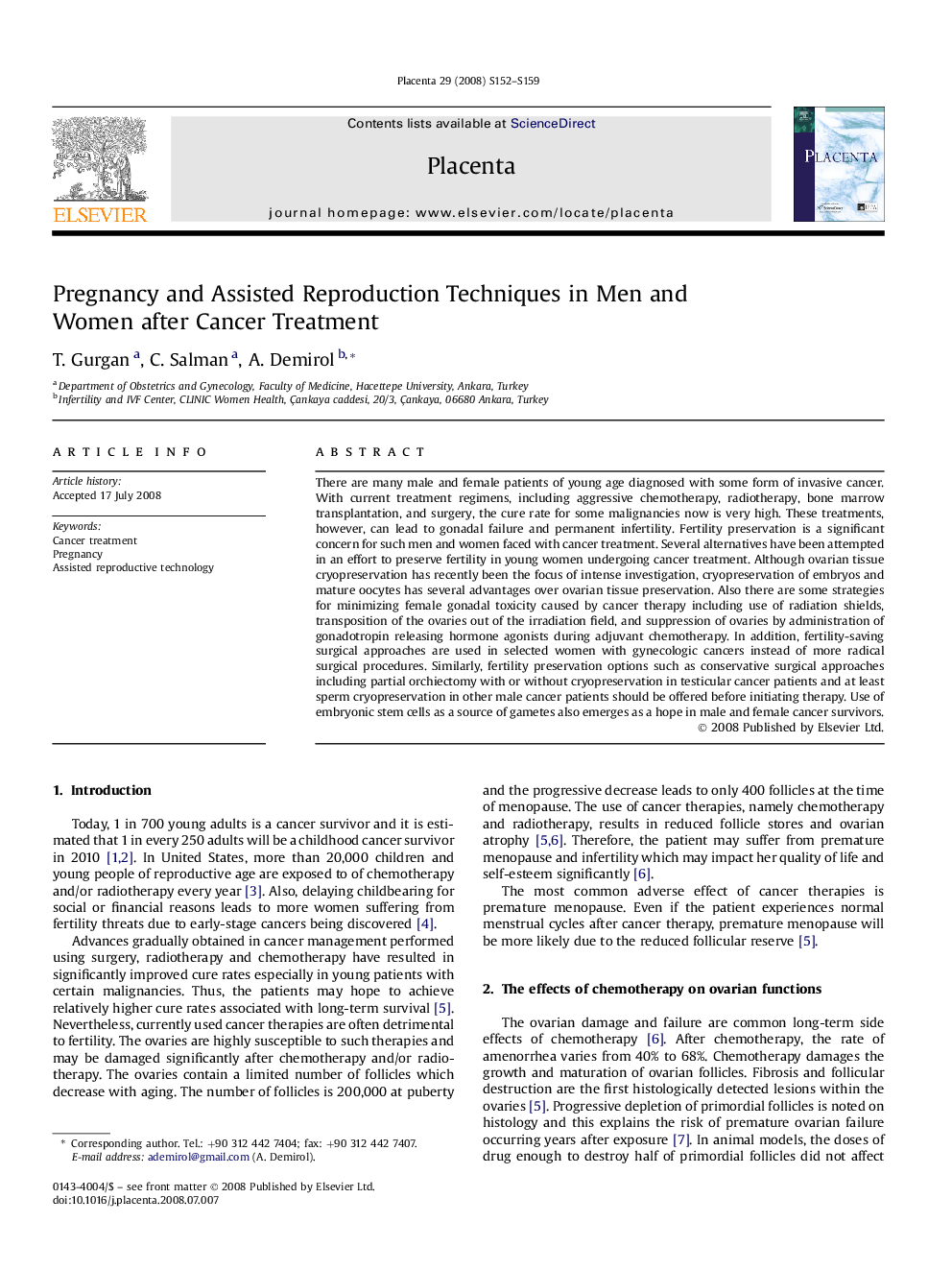| Article ID | Journal | Published Year | Pages | File Type |
|---|---|---|---|---|
| 2790239 | Placenta | 2008 | 8 Pages |
There are many male and female patients of young age diagnosed with some form of invasive cancer. With current treatment regimens, including aggressive chemotherapy, radiotherapy, bone marrow transplantation, and surgery, the cure rate for some malignancies now is very high. These treatments, however, can lead to gonadal failure and permanent infertility. Fertility preservation is a significant concern for such men and women faced with cancer treatment. Several alternatives have been attempted in an effort to preserve fertility in young women undergoing cancer treatment. Although ovarian tissue cryopreservation has recently been the focus of intense investigation, cryopreservation of embryos and mature oocytes has several advantages over ovarian tissue preservation. Also there are some strategies for minimizing female gonadal toxicity caused by cancer therapy including use of radiation shields, transposition of the ovaries out of the irradiation field, and suppression of ovaries by administration of gonadotropin releasing hormone agonists during adjuvant chemotherapy. In addition, fertility-saving surgical approaches are used in selected women with gynecologic cancers instead of more radical surgical procedures. Similarly, fertility preservation options such as conservative surgical approaches including partial orchiectomy with or without cryopreservation in testicular cancer patients and at least sperm cryopreservation in other male cancer patients should be offered before initiating therapy. Use of embryonic stem cells as a source of gametes also emerges as a hope in male and female cancer survivors.
